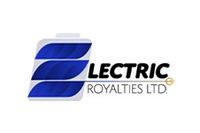LME Looks at Cobalt Trade to Ensure Responsible Sourcing in Supply Chain
The London Metal Exchange has launched an investigation over fears that cobalt traded on its exchange could be linked to human right abuses.
The London Metal Exchange has launched an investigation to ensure cobalt traded on its exchange is not linked to human right abuses after members raised concerns about a Chinese refiner.
The 140-year-old LME has asked suppliers to provide information on how they will guarantee responsible sourcing, which it says is part of a “broader push” that it was pursuing independently. The deadline for the answers is December 1.
“We have strict guidelines and criteria for brands wishing to list their products on the LME,” the exchange said. “Any evidence of sub-standard practices that fall short of our requirements would be investigated by the LME and action would be taken.”
More than 50 percent of the world’s cobalt supply comes from the Democratic Republic of Congo (DRC), the world’s top cobalt-producing country, with about 20 percent extracted by artisanal miners. Once mined, most of the cobalt is sent to China, where it’s processed into the chemical products used in rechargeable batteries.
According to the Financial Times, two traders said concerns arose this summer when metal produced by Yantai Cash Industrial, a Shandong-based producer, appeared on the exchange. They said many market participants believe Yantai Cash sources some of its unrefined cobalt from artisanal mines in DRC, which carry a higher risk of using child labor.
Yantai is now working with China’s Chamber of Commerce of Metals, Minerals and Chemicals Importers and Exporters, and shipping services firm RCF Capacity Planners to audit its supply chain, Liu Xiaohan, a manager at the company, told Bloomberg.
“They will help us set up a responsible supply chain system,” Liu said. ‘‘We are going to set up a code of conduct and we will ask our suppliers to clarify the source of raw materials we buy.”
Demand for cobalt, a key element in the lithium-ion batteries used to power electric vehicles (EVs), is expected to soar in the coming decades as sales of EVs surge. As a result, scrutiny of the industry has increased in the past few years.
In 2016, Amnesty International exposed a link between child labor and the battery supply chains of leading EV and electronic companies such as Apple (NASDAQ:AAPL), Microsoft (NASDAQ:MSFT) and Tesla (NASDAQ:TSLA).
Last week, the group released a new report warning that industry giants, including Renault (EPA:RNO) and Daimler (FWB:DAI), were still failing to tackle child labour in their cobalt supply chains.
“Across the board there is a lack of transparency,” Amnesty states in the report. “Companies are not disclosing their assessments of the potential for human rights abuses in their supply chains, or of their suppliers’ own due diligence practices.”
The group welcomed the LME decision to investigate its cobalt trade as an important step towards ensuring that companies aren’t profiting from human right abuses.
“There are clear international guidelines for responsible sourcing and it is unacceptable that we have to name and shame companies before they act on them. Companies are running out of excuses and must take responsibility for what goes into their products,” Seema Joshi, Head of Business and Human Rights at Amnesty International, said.
Don’t forget to follow us @INN_Resource for real-time news updates.
Securities Disclosure: I, Priscila Barrera, hold no direct investment interest in any company mentioned in this article.

